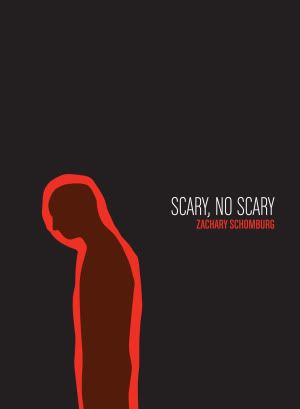
I used to read books while I pooped. I read Leaves of Grass in its entirety, over the course of a two year period, on the toilet; the first thirty cantos of Pound's The Cantos (only a total asshole would read the whole collection); and an historical overview of visual collage, which was the last book I read under these circumstances, just to name a few.
But ever since May of 2011, my housing situation has been fluid and I haven't settled into a solid poop-and-read routine. Until now.
I'm not exactly sure how, but Zachary Schomburg's Scary, No Scary ended up on the ledge of my bathtub, so I started re-reading the book while taking my morning "bathroom break." To my mind, it's a book of discovery and transformation, both of which are found in "New Kind of Light":
I'm not exactly sure how, but Zachary Schomburg's Scary, No Scary ended up on the ledge of my bathtub, so I started re-reading the book while taking my morning "bathroom break." To my mind, it's a book of discovery and transformation, both of which are found in "New Kind of Light":
I move my handsin these woodsto find her sex-parts.We discover our sex-partsmake heatand blue light.We become outlines of ourselves—long scratchesin the sky.We have a daughterwho was never born.She lives in the housewe never built,But in this new light,you can almost seeits tattered roof. (9)
Both the discoveries and transformations are fantastical, creating a dream-like aura. Many times, they deal with the natural world. Take the excerpted material very next poem "Your Limbs Will Be Torn Off In A Farm Accident," for instance:
Your limbswill be torn offin a farm accident.Tree limbswill grow in those places....Soon you'll bemore treethan person. (10)
Of course, it is not until the book's closing poem that the "You" of the poem, or the poem's speaker for that matter, understands that the transformation takes place. Moreover, the transformation only registers when the natural world informs us, so to speak: "if there is a shadow of a tree and no trees around / I am the tree" (58).
Certainly, these tropes can be viewed through the lens of an American neo-surrealism, which often seems to be the case with Schomburg's writing. But a different (and for that reason more productive) reading could be to filter Scary, No Scary through an eco-fabulist lens, wherein the poems convey extraordinary parables about humanities interaction with nature. Of course, because of the abundance of death within the collection, readers may wonder as to whether or not the relationship is parasitic or symbiotic. The answer may be a matter of personal interpretation, but one thing is clear: regardless of whether the interactions are cyclical self-regulating systems, or self-destructive mechanisms, we are told to approach them with courage, just as the speaker does: "You'd think I'd be scared / But I'm not scared" (79).

I think you're eco-fabulous.
ReplyDeleteYou guys like Rilke?
ReplyDeleteOnly the early stuff.
ReplyDeleteO man, I'm so super big into Rilke, especially the middle years.
ReplyDelete